Of Dancing Lights
Eddie Ng Wai Huen

Copyright 2017 Eddie Wai Huen Ng
The moral right of the author has been asserted.
Apart from any fair dealing for the purposes of research or private study, or criticism or review, as permitted under the Copyright, Designs and Patents Act 1988, this publication may only be reproduced, stored or transmitted, in any form or by any means, with the prior permission in writing of the publishers, or in the case of reprographic reproduction in accordance with the terms of licences issued by the Copyright Licensing Agency. Enquiries concerning reproduction outside those terms should be sent to the publishers.
Matador
9 Priory Business Park,
Wistow Road, Kibworth Beauchamp,
Leicestershire. LE8 0RX
Tel: 0116 279 2299
Email:
Web: www.troubador.co.uk/matador
Twitter:
ISBN 978 1788031 479
British Library Cataloguing in Publication Data.
A catalogue record for this book is available from the British Library.

Matador is an imprint of Troubador Publishing Ltd
In memory of
Professor Wu Tee
To my angelic wifeShui Lin
The major character in this book
A character in real life
Acknowledgements
Sincerest thanks to my sister Pauline Delbridge for encouraging me to start this book. Eternally grateful to Tom Delbridge for his ruthless and at times puritanical editinghe should start an encyclopaedia. Special thanks to Sandra von Arand for the structural advice brought from years of experience as an author herself and Elise Love for the extensive initial editing while charging me peanuts. All my patients who kindly served as readers and critics deserve a free scale-and-clean: Eleanor Ahern, Ann Simpson, Clive Ragless, Debra Burke, David Gosnell, Julie Chamberlain, Jane Whittaker, Pam Jones, Allister MurrayI am running out of space here. Courtney Lai, a free dental treatment wont mean much because she is an accomplished dentist herself, but our friendship should.
Authors note: spelling of Chinese names
If someone asks my name today I reply Eddie Ng; the Ng being my surname. However, when I received my Hong Kong Identity Card, it gave my full Chinese name in two forms: in Chinese characters ( ) and in spelt (Romanized) form as Ng Wai Huen. You will note my surname precedes my given name as per the normal Chinese practice.
) and in spelt (Romanized) form as Ng Wai Huen. You will note my surname precedes my given name as per the normal Chinese practice.
Chinese characters are logograms. During the early phases of their development, different parts of China wrote the characters in different ways until the Qin Dynasty when the First Emperorthe tyrant who built the Great Wallunited China and standardized the writing by adopting one of the scripts already in use in the Qin state as the formal script. It was further developed during the Han Dynasty and to a lesser extent during the Tang Dynasty, to become the mature regular script as we know it today. Mainland China still uses this script albeit with simplification in order to boost the literacy rate. Taiwan, however, retains the traditional form.
What the First Emperor could not achieve, of course, was to standardize the dialects. Whilst a large proportion of Chinese people speak the Mandarin dialect, many parts of southern China have held onto their regional dialects. In particular, in Hong Kong and in Guangdong province the predominant dialect is Cantonese, which is my mother-tongue. So when a Chinese name is Romanized, the spelling can vary depending on the dialect of the person performing the Romanization or of the person whose name it is.
Today, in Mainland China a Mandarin speaker would Romanize names using pinyin. For example, he would spell my name as Wu Weixuan. In Taiwan, the government has now also adopted pinyin except that the given names are hyphenated; although some people still prefer the older Wade-Giles system. Cantonese speakers cannot use pinyin and spell their names in various ways, sometimes again with the given names hyphenated. English names are often adopted by the people in Hong Kong due to the earlier colonial influence and they appear before the surnames. Thus I spell my full name as Eddie Ng Wai Huen. The surname of Ng is middle ranking in popularity. It is, perhaps, the most difficult to pronounce. It is a vela nasal sound pronounced as N-hmm-n. If it sounds difficult, it is. Most people just call me Eddie.
Throughout this book, Romanization of the names of the historical figures and of places in Mainland China is in pinyin, while the names of my own family members and places in Hong Kong are spelt in Cantonese.
Contents
Preface
I have always been close to Paulinemy eldest half-sister, pen-friend, and confidant. We have kept in touch throughout the years despite living at opposite ends of the world, with me in Australia, and her in England. Since the convenience of emails became widespread, we made contact even more often. Three years ago, in one of our regular exchanges she said, I have been enjoying your emails not just by the content but the way they are beautifully written. You should start a book. You do remember what Professor Wu said dont you?
The late Professor Wu Tee was Paulines mentor at the Chinese University of Hong Kong in the 1960s. He was a foremost exponent of classical poems. Through Pauline, I had the privilege of meeting this sterling scholar in my early teens. He declared I was a boy wonder and encouraged me to write a book when I had gained enough life experiences. That went into the subliminal until Pauline reminded me.
So, what should I write about? It would have to be in English because my Chinese is too rusty since I havent actively used it for more than forty years. But English isnt my mother-tongue. That means I would have to think in Chinese and write in English. The resultant style of writing is surprisingly apt, although it did create a few nightmares for my editors.
I have adopted a journalistic approach. The names are real names. However, this book is not meant to be a historical reference or even an autobiography. My aim is to take readers back to the scene without filtration and let them judge for themselves or simply sit back and enjoy the time capsule ride.
The content is the memoir of my life from infancy to near-retirement. The arc of the story begins with the history of my clan, then weaves through my childhood and early adulthood in the then British colony of Hong Kong, and eventually sees me compelled to emigrate for many reasons. Throughout the book, Chinese culture and religious beliefs are featured heavily; as are the times and places where my story unfolds. The intent is to create snapshots of the moments of my life held dear to my heart, and I hope it will be read with as much ebullience as it has been written.
Chapter 1
Ancestry
From my birthplace in Hong Kong during the 1950s, which may sound prehistorical, to the modern world of free flowing cross-cultural exchange at the speed of light, what a lot of difference sixty years has made. As I mull over news of dire climatic change, senseless loss of lives in terrorist acts, and never-ending economic woes, I ruminate at my own lifewhat have I enjoyed and what have I suffered, what have I embraced and what have I forsaken
Not so long ago on an overcast afternoon by a breezy window sat the three of us. While the filmy curtain fluttered, I quizzed my nonagenarian mum about my ancestry. There she knitted; she affirmed without deliberation my great-grandfather was a butcher. It was a surprise since I thought my ancestors would have had more illustrious careers; my father did, and so did my grandfather. My son Nam, age sixteen then, flippantly remarked, It must run in the family. My great-grandfathers father was a butcher, and now my dad is one! He equated butchery to my sacred profession of dentistry. I gave him a reproachful stare and reminded him who paid for his expensive private school education and state-of-the-art computer. Unfortunately, the stare had passed its use-by-date and generated only a laugh.
Next page
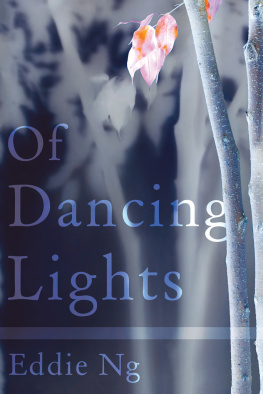
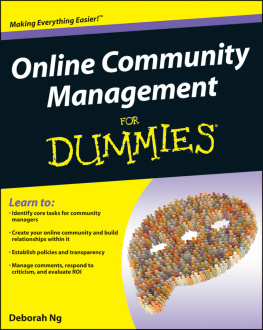
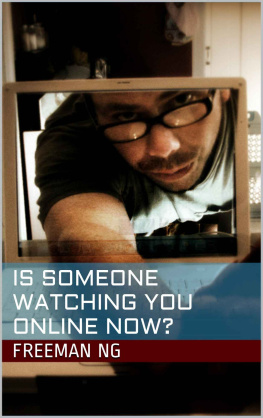

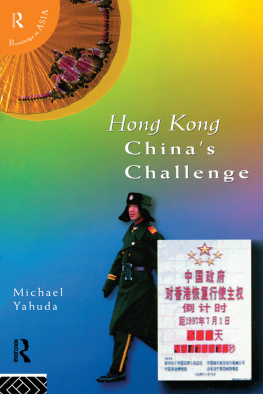
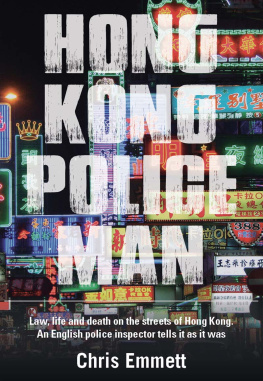
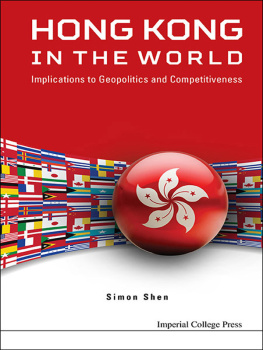
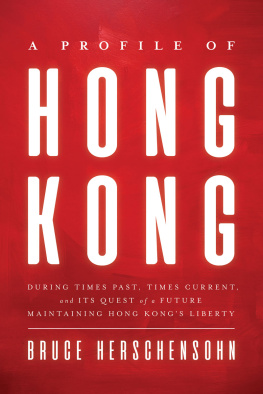
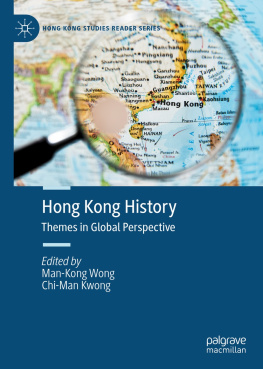
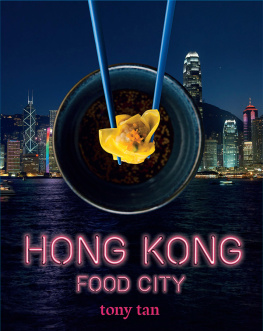

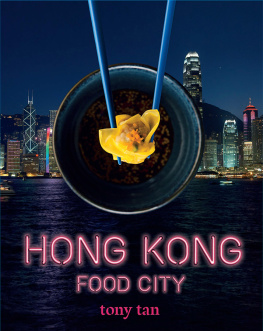
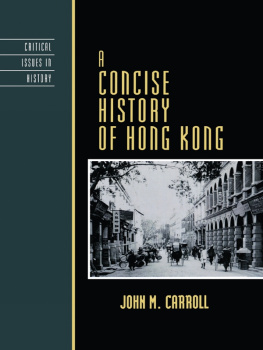


 ) and in spelt (Romanized) form as Ng Wai Huen. You will note my surname precedes my given name as per the normal Chinese practice.
) and in spelt (Romanized) form as Ng Wai Huen. You will note my surname precedes my given name as per the normal Chinese practice.